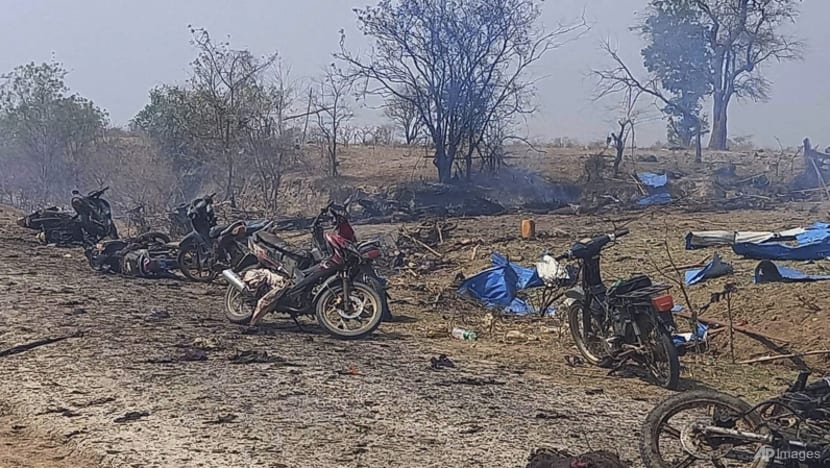Violence continues in Myanmar two years into military coup, Five-Point Consensus at deadlock
The five-point peace plan was agreed between the junta and the Association of Southeast Asian Nations (ASEAN) in Jakarta in April 2021, two months after the power grab.

SINGAPORE: Two years into the coup in Myanmar, the junta still has not implemented an agreed peace plan to resolve the crisis.
The Five-Point Consensus was agreed between the junta and the Association of Southeast Asian Nations (ASEAN) in Jakarta in April 2021, two months after the power grab.
The military had acted against the elected government of Nobel laureate Aung San Suu Kyi in the wee hours of Feb 1, 2021, claiming that the country’s earlier election was a fraud.
Recent violence in Myanmar has shown the military’s lack of interest in sticking to the peace plan.
ROADMAP NEEDED
The plan was adopted after ASEAN leaders called for a special meeting with army chief Min Aung Hlaing.
They agreed on an immediate cessation of violence, and permission for ASEAN to send humanitarian aid to the country.
There was also a promise to hold constructive dialogue with all stakeholders, and allow a special envoy to visit Myanmar and facilitate the mediation.
Dr Lina Alexandra, coordinator of the Myanmar Initiative Programme at the Centre for Strategic and International Studies, said the Five-Point Consensus needs “a roadmap”.
"There should be a follow-up immediately after that,” she said. “If that had been the case, I think the situation would be a rather different one than what we're seeing now, because ASEAN has a clear roadmap."
The idea for such a roadmap eventually surfaced in November last year.
The bloc's leaders decided at the ASEAN Summit in Cambodia that there needs to be a clear timeline and concrete outcomes to support the Five-Point Consensus.
Indonesian Foreign Minister Retno Marsudi had said that such a plan would provide the bloc “a guidance to address the situation in Myanmar in a united manner”.
However, there remains no details on the progress of the implementation plan.
NON-INTERFERENCE BY ASEAN
In late 2021, months after the coup, ASEAN leaders made an unprecedented move and banned the Myanmar army from attending its meetings.
The regional grouping continues to be slammed for being inefficient and not taking enough action.
Ms Moe Thuzar, senior fellow and coordinator of the Myanmar Studies Programme at the ISEAS - Yusof Ishak Institute, said: "I think ASEAN has done pretty much a lot on Myanmar in terms of even bending its non-interference principle to that extent.”
She explained that the bloc has acted “within the limitations of what ASEAN is as an intergovernmental organisation”.
“ASEAN has never held sanctions (and) ASEAN does not put boots on the ground, because that is not part of what ASEAN's commitments are in the ASEAN charter,” she added.
With the implementation of the five-point peace plan now at a deadlock, all eyes will be on the upcoming ASEAN Summit in May.
Observers will be looking at whether the regional leaders will revamp their responses and more strongly convince Myanmar to honour the Five-Point Consensus.
















